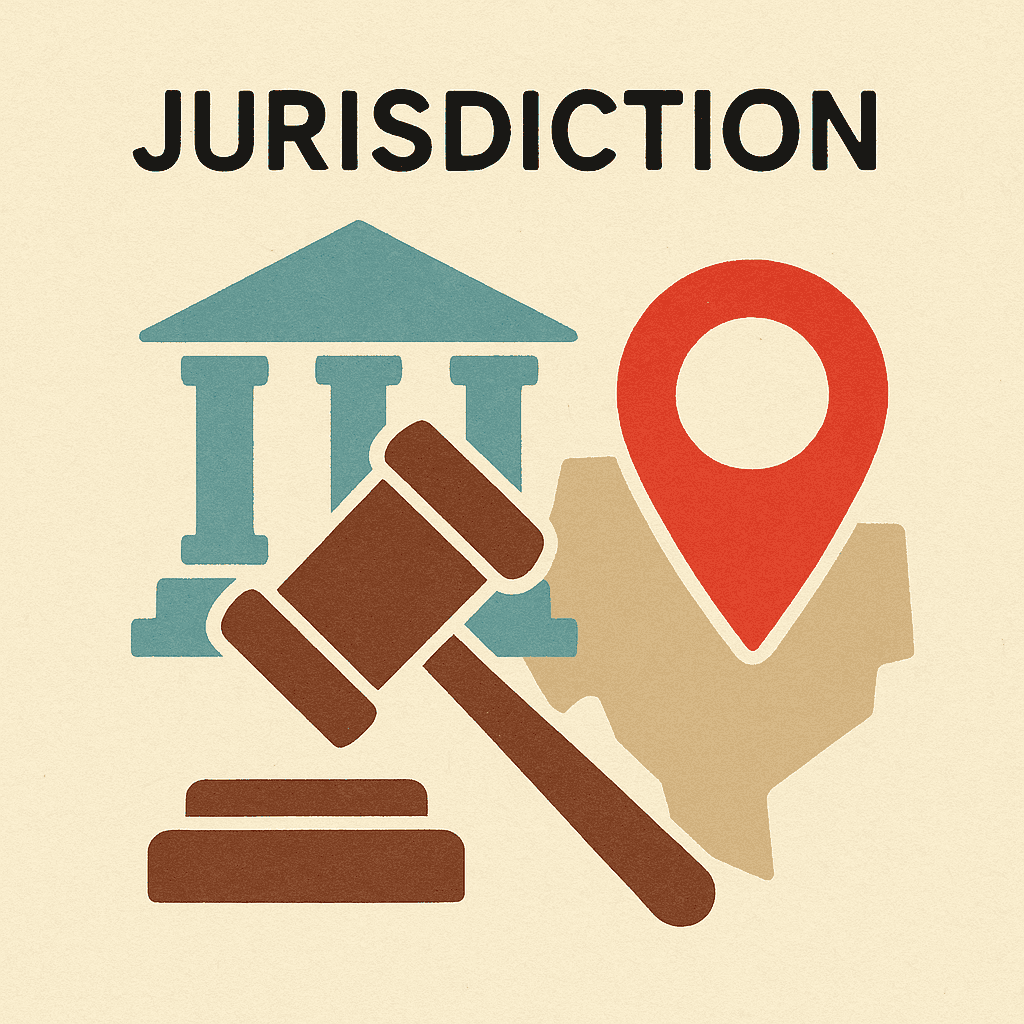Meaning
Jurisdiction is a noun that refers to the official power or authority of a court, government, or organization to make decisions, judgments, or enforce laws in a certain area or over certain types of cases.
Grammar and Usage
-
Part of speech: noun (countable/uncountable)
-
Common structures:
- “have jurisdiction over [something/someone]”
- “fall under the jurisdiction of [authority]”
- “outside/within the jurisdiction of [court/organization]”
Example patterns:
- The court has jurisdiction over civil cases.
- This issue falls under the jurisdiction of the local government.
Common Phrases
- Within jurisdiction – under legal authority.
- Outside jurisdiction – not under legal authority.
- Jurisdictional dispute – conflict about which authority has the right to decide.
- Exclusive jurisdiction – only one court or authority can decide.
- Concurrent jurisdiction – more than one court or authority can decide.
Collocations
- exercise jurisdiction
- lack jurisdiction
- jurisdiction over cases/matters/disputes
- territorial jurisdiction
- legal jurisdiction
Examples
- The Supreme Court has jurisdiction over constitutional matters.
- That crime falls outside the jurisdiction of the local police.
- The international court claimed jurisdiction in the case.
- Tax disputes often fall under the jurisdiction of special tribunals.
- Different states may have concurrent jurisdiction over environmental issues.
- The judge ruled that the court lacked jurisdiction to hear the case.
- The company operates in multiple jurisdictions around the world.
- Parents have jurisdiction over their children in legal matters until adulthood.
Synonyms or Related
- authority
- control
- power
- competence
- dominion
Antonym
- powerlessness
- lack of authority
- subordination
